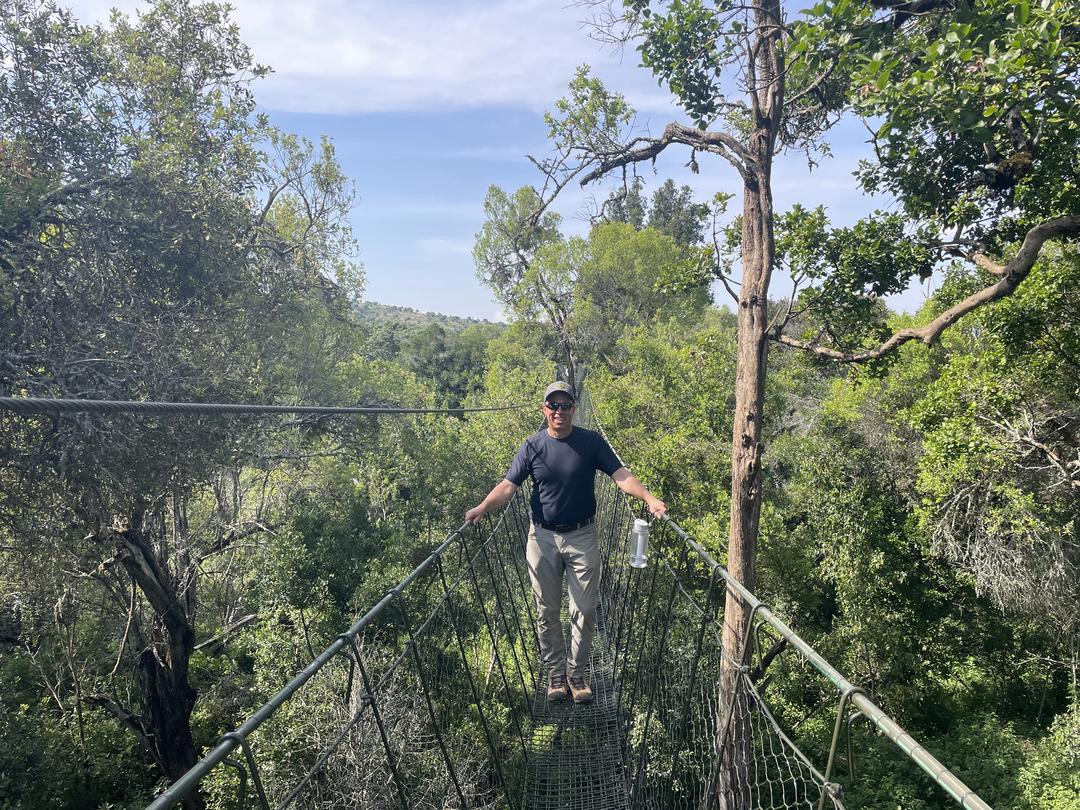Veteran Field Station Scientist Brian Kloeppel Joins Mpala’s Senior Team

Brian Kloeppel, hired in June as the inaugural director of the Mpala Secretariat, knows field research centers. As a professor of natural resource conservation and management at Western Carolina University, a role he held for 17 years, his time spent in research and managing field research centers is vast. In fact, his first job post-Ph.D. would span 13 years as the field station director of the Long-Term Ecological Research Program at Coweeta Hydrologic Laboratory in North Carolina, where he managed a large grant.
“Mpala is unique in a lot of ways, but one is that it's completely off the grid. It’s 100% solar-powered, and all the water is filtered rain runoff. But you wouldn't know it when you
arrive to the ranch house and connect to the internet or take a warm shower.”
— Brian Kloeppel, Director, Mpala Secretariat
In 2021, when he came across a call for proposals circulated by the Organization of Biological Field Stations for an extended site review of the Princeton-managed Mpala Research Centre in Kenya, he jumped at the opportunity. Kloeppel and his team of six spent a week at Mpala “looking at all aspects” of the center including “administrative structure, financial management, research programming, educational programming, physical infrastructure, buildings, roads, water,” all important information that went into Mpala’s 2024 strategic plan, he said. “At the time, I had no idea this position would be created, but it’s been really valuable to come into this role already knowing the center and the people I'd be working with.”
As the director of the Mpala Secretariat, a main focus will be on increasing engagement with the center by Princeton’s faculty and students. And he’s already made strides: In the fall, three Princeton courses — two undergraduate, one master’s level — included travel to and fieldwork at Mpala. He will also attend to issues around capital projects, facilitating new long-term studies and
building collaborations.
After a career of field station work, Kloeppel waxed philosophical about the ways in which they — but especially Mpala — embody a singular, synergistic and immersive space within the world of research. “You're in a very remote location, so you're part of a community,” he said. “There’s this wonderfully broad mix of people coming and going — not only from your university — and there’s a sharing of ideas, a questioning of your projects and
hypotheses. I get a lot of joy out of being able to connect people.”
